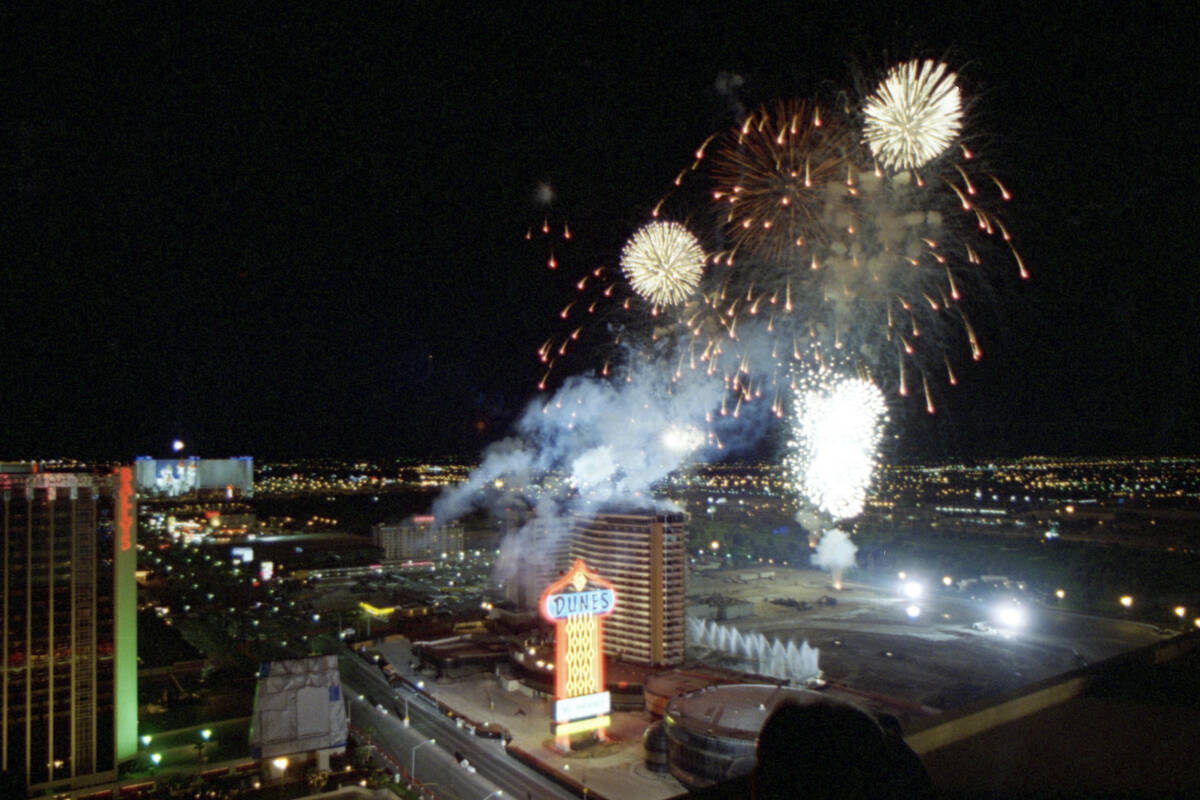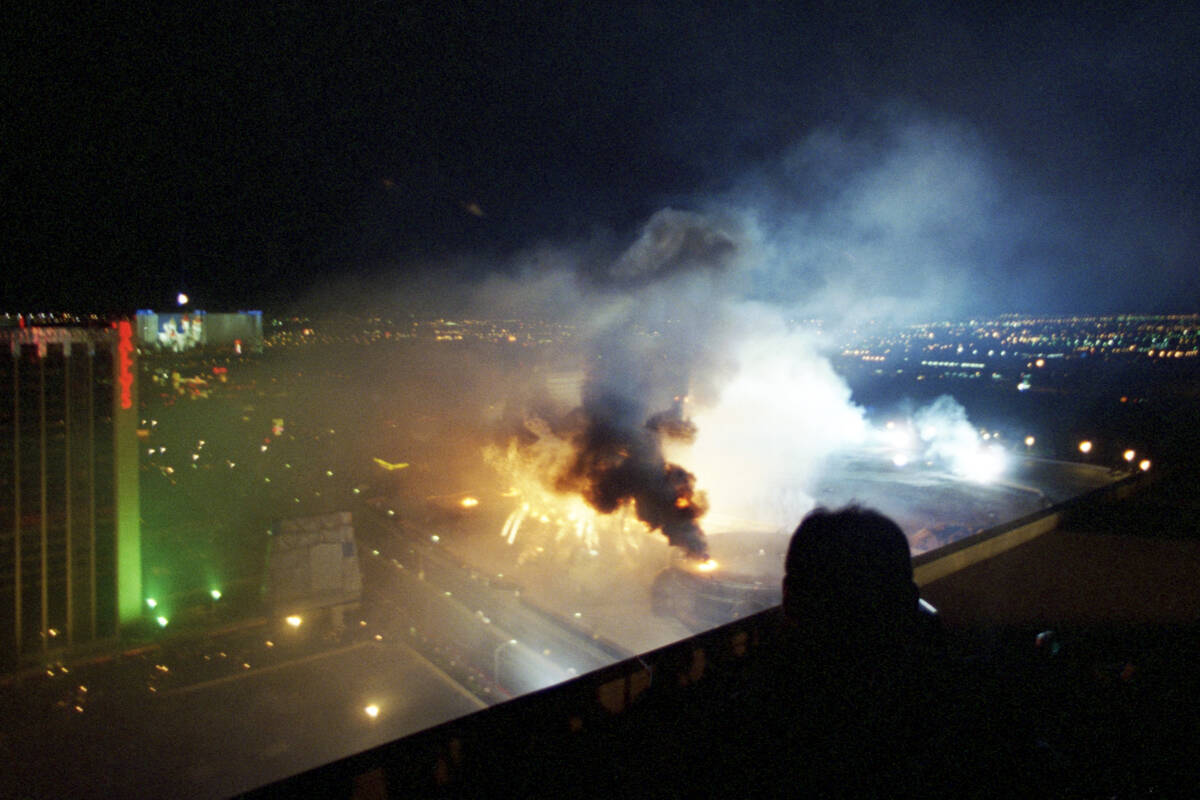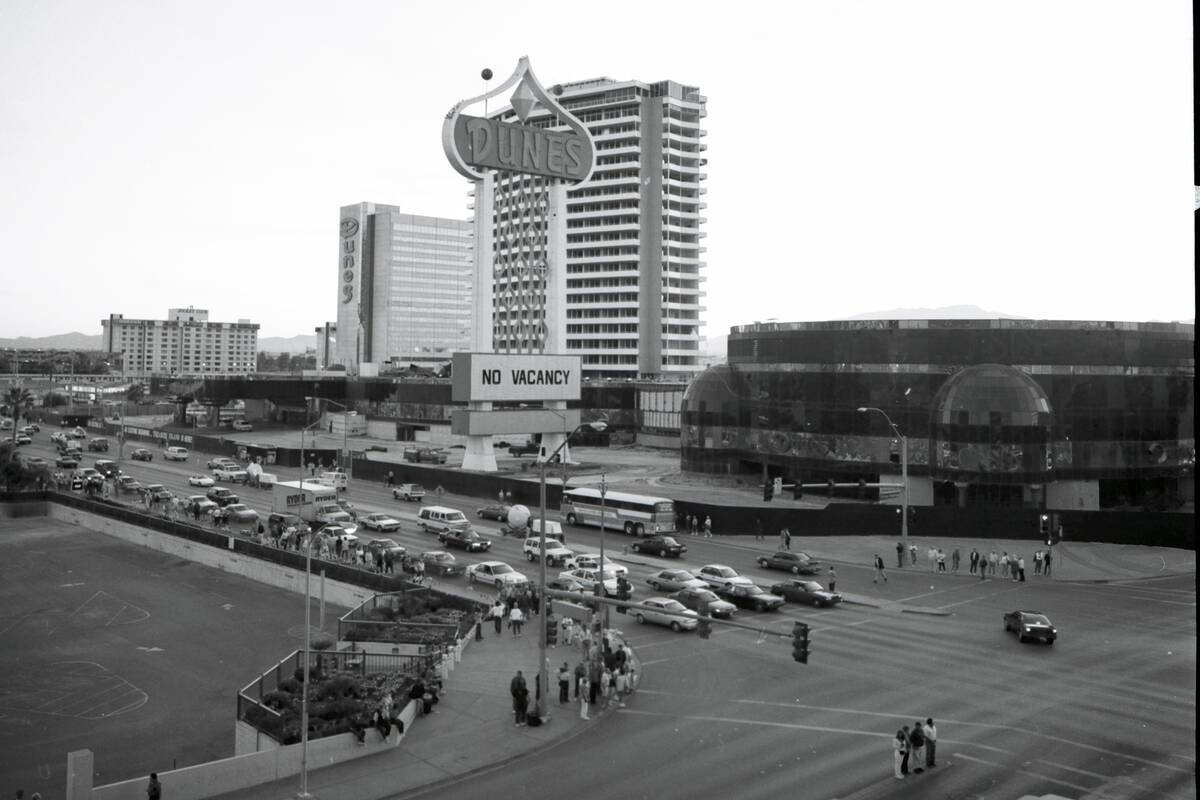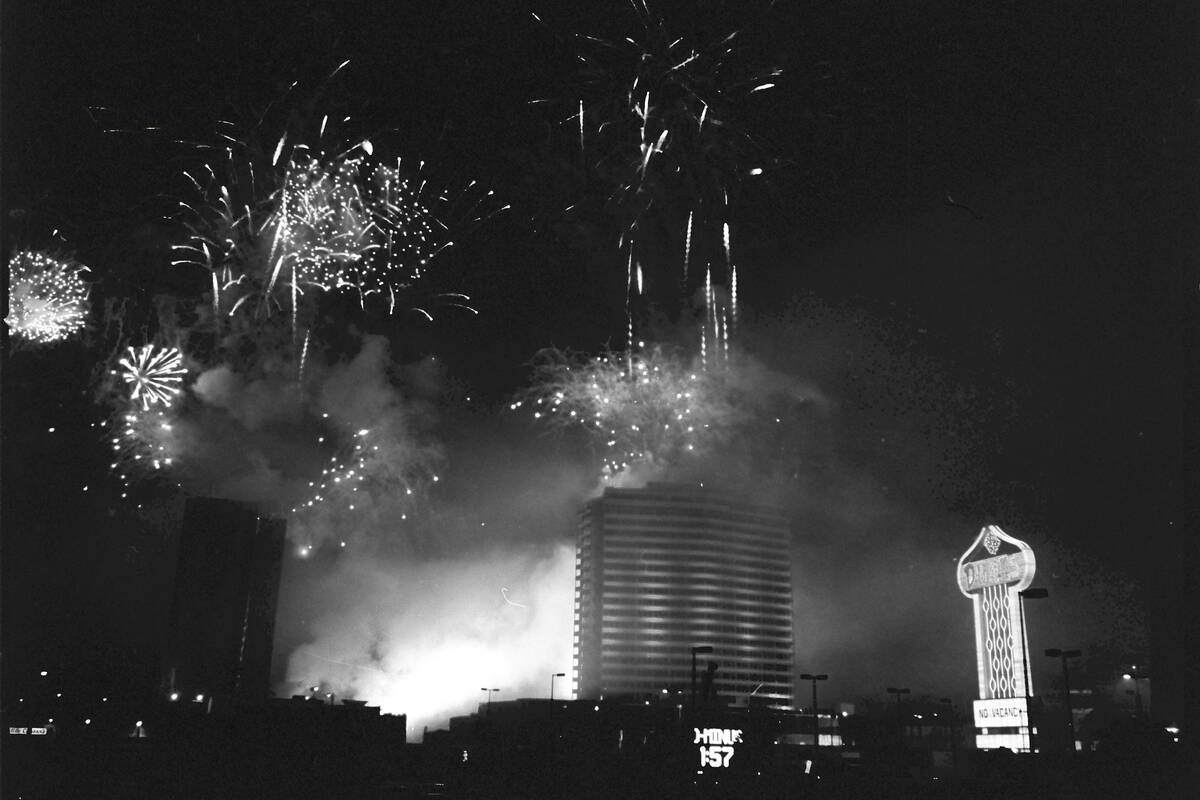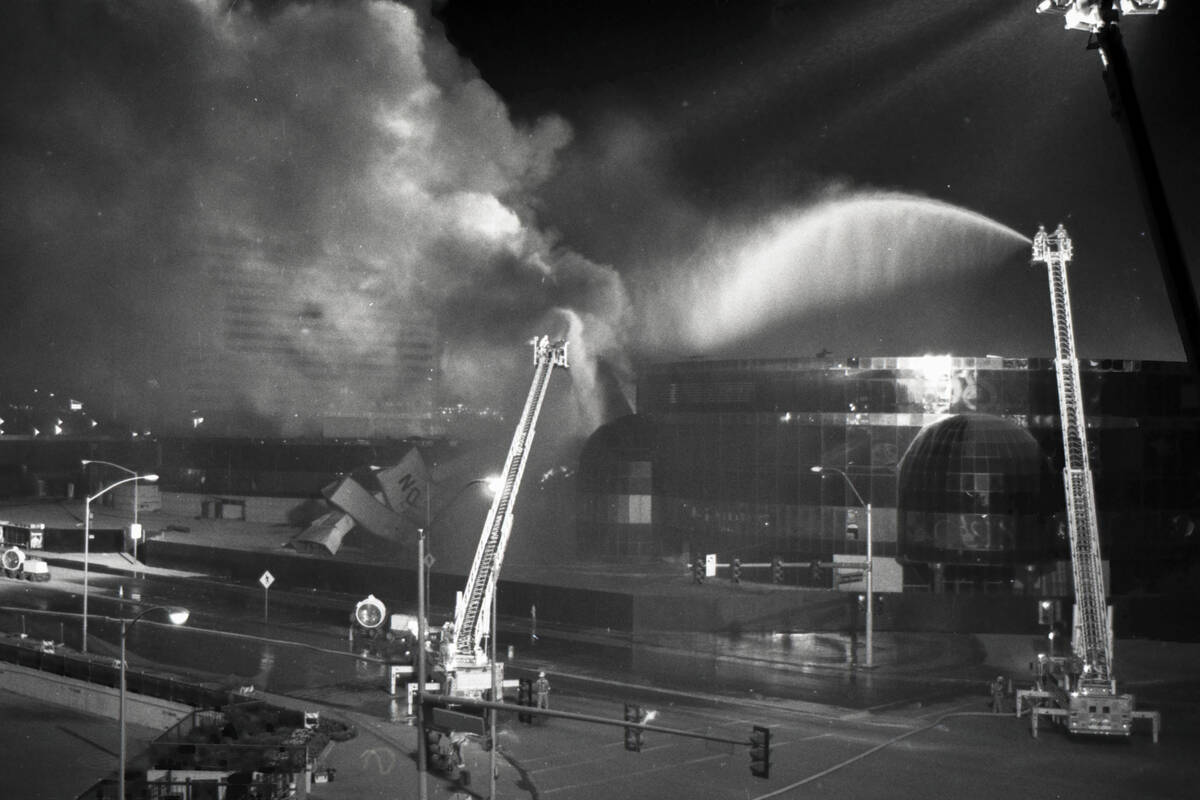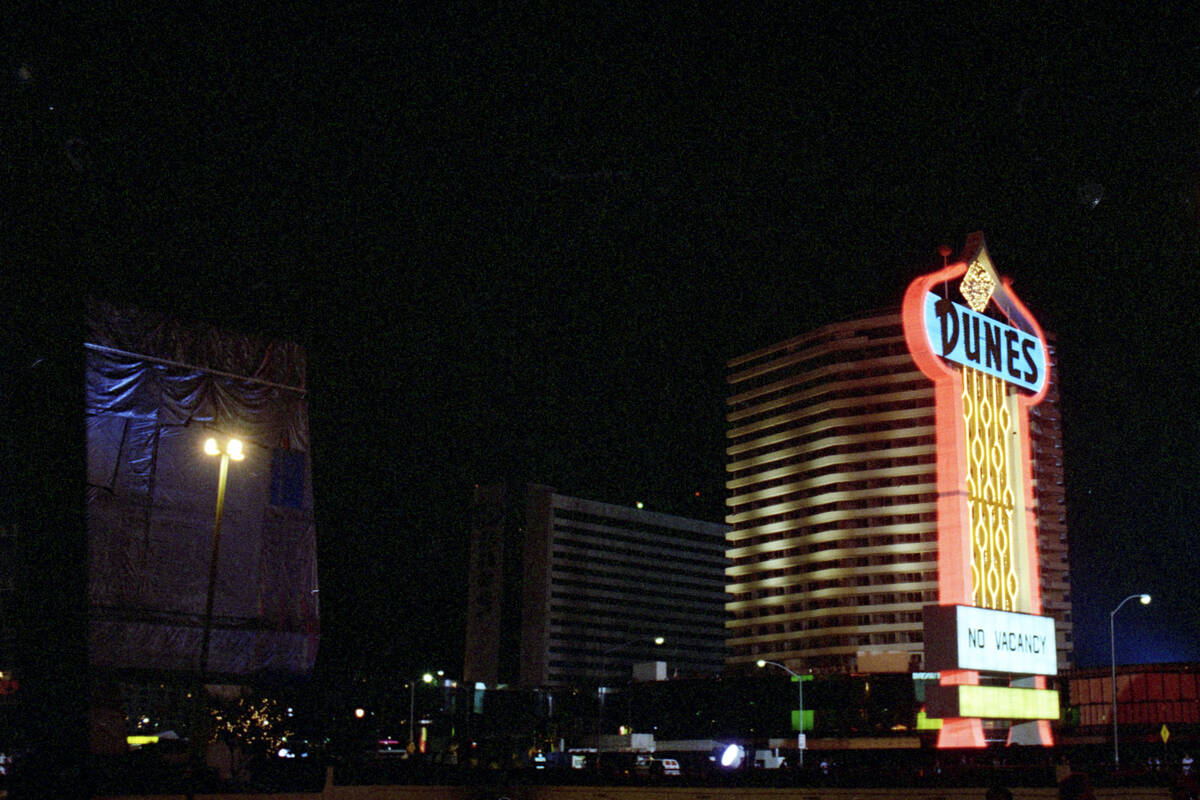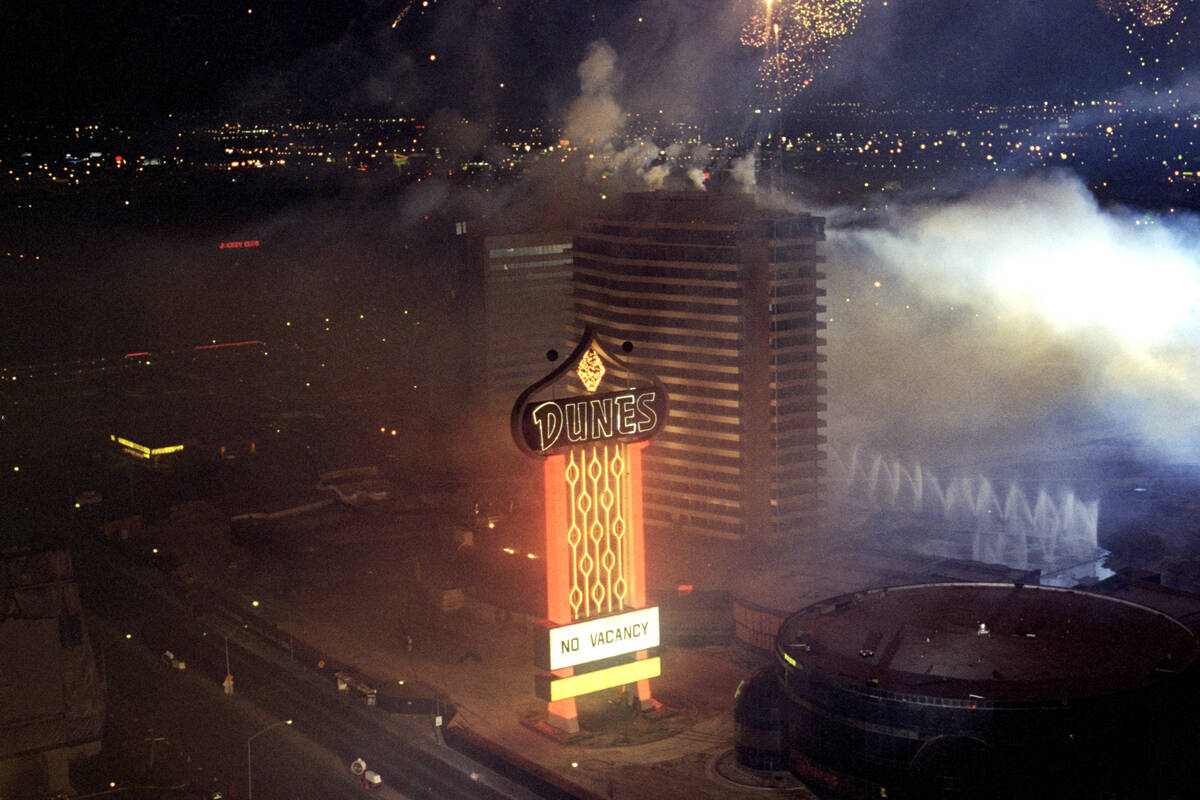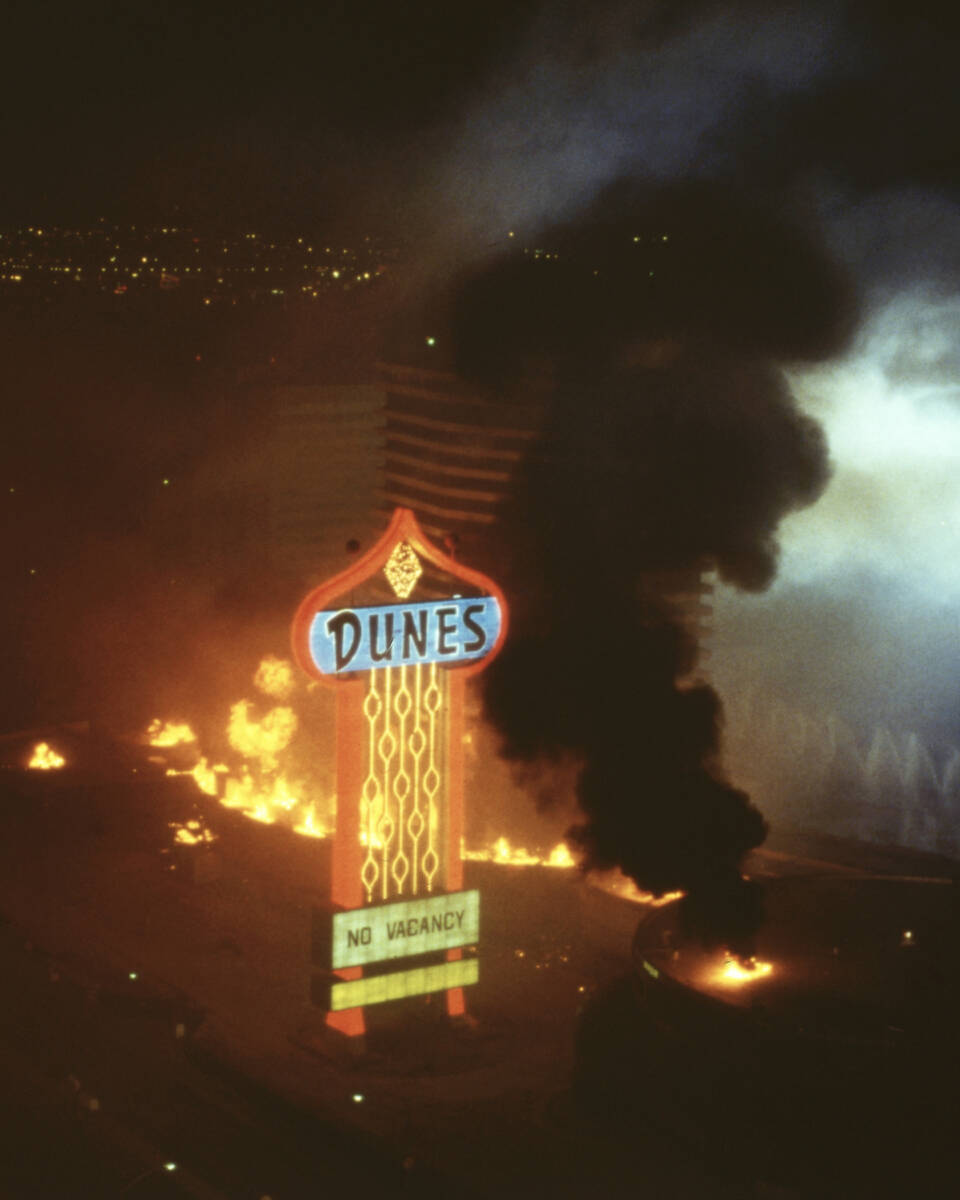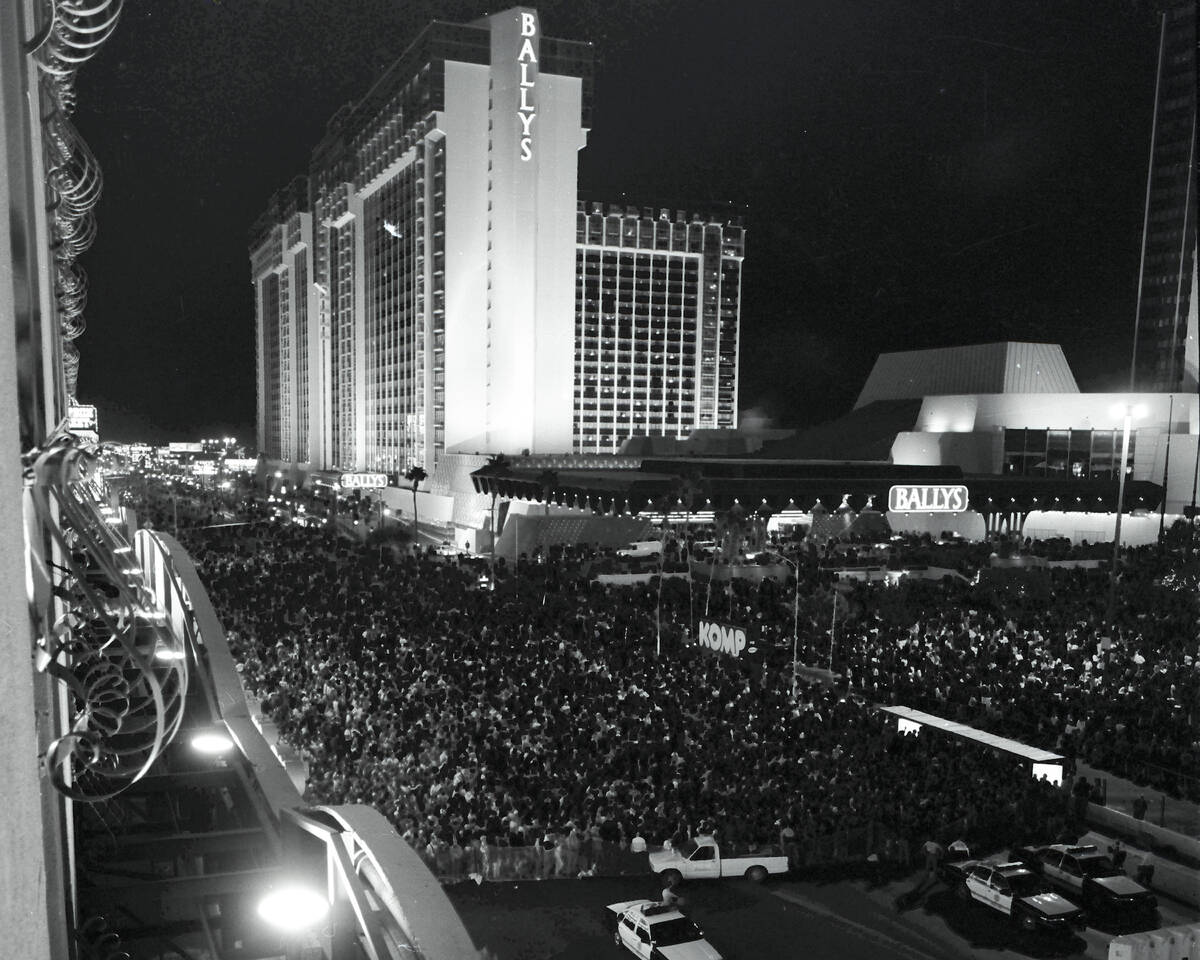The Tropicana implosion: How the Dunes’ demise in 1993 paved the way
As the first local hotel to be brought down by explosives, the Dunes set a high bar for the Strip implosions that followed — including the upcoming demise of the Tropicana.
It also established Las Vegas as the only city on the planet that celebrates its history by blowing it to smithereens.
But locals weren’t entirely sure what to expect leading up to that initial implosion on Oct. 27, 1993.
The Review-Journal ran public notices warning readers that the event would “include loud noise, bright flashes, smoke and heavy dust.”
Public officials predicted a 2-inch coating of that dust spread over a half-mile radius.
“We’ll try not to hit Caesars,” Mirage Resorts Inc. spokesman Alan Feldman joked about the Dunes’ northern neighbor.
J. Mark Loizeaux knew exactly what was coming, though, and he was excited. The president of Controlled Demolition Inc., the Maryland-based company in charge of leveling the Dunes, had brought down 6,000 buildings, bridges, chimneys and silos.
“This,” Loizeaux said at the time, “is going to be absolutely awesome.”
Clearing the way for Bellagio
The Dunes had a hard, relatively brief life.
Once known as “The Miracle in the Desert,” the resort had fallen into disrepair due to mismanagement throughout most of its 38 years.
“They ran the place into the ground,” Steve Wynn said after purchasing the Dunes and its 164 acres in 1992. “Worse. They were a bunch of thieves. It was run by a steady procession of dingdongs.”
Early speculation had Wynn building a theme park on the lot at the corner of Las Vegas Boulevard and Flamingo Road.
Once a resort was confirmed for the property, initial plans for what would become Bellagio described a hotel modeled after the Fontainebleau in Miami, with a large lake for sailing, windsurfing and water skiing.
Before any of that could happen, Wynn needed to bring down the Dunes, starting with its 235-foot north tower. At the time, it was the tallest structure ever razed in the valley.
The Castaways, the hotel Wynn cleared in 1987 to make way for The Mirage and Treasure Island, was a low-rise joint, two- and three-stories tall, that dated back to the 1930s. It, like the other buildings demolished on the Strip up to that point, was too small to implode.
Don Fitzgerald, Clark County’s fire marshal, said at the time that taking down the Dunes tower with a wrecking ball could take up to six months, tying up traffic on the Strip all the while.
“The alternative to this,” Fitzgerald said of the use of explosives, “is really more risky than the implosion.”
Hollywood ambitions
Two years before the Dunes’ demise, almost to the day, Loizeaux and his team leveled the old city hall in Orlando, Florida. Footage of the well-publicized blast was used in the opening moments of “Lethal Weapon 3.”
Wynn wanted something just as spectacular — and every bit as commercial. He contacted Hollywood studios to gauge their interest in his implosion but ultimately used the footage in the climax of “Treasure Island: The Adventure Begins.”
The TV special/infomercial followed a pirate-obsessed boy who checked into Treasure Island with his mom and dad (“Chicago P.D.” star Jason Beghe), met Long John Silver, got a map to treasure buried deep beneath the Dunes, was chased by the villainous Black Dog and his men and interacted with Wynn an improbable number of times.
In addition to showing most of Treasure Island’s original pirate show, the special included cameos from the cast of “Mystère,” Siegfried & Roy, the Mirage dolphins and newswoman Gwen Castaldi.
Wynn paid $1.7 million for NBC to air it at 8 p.m. on Jan. 23, 1994.
It was among that week’s least-watched shows.
A party on the Strip
On the evening of the implosion, as many as 200,000 spectators flooded the Strip.
Starting at 7 p.m., roughly three hours before the blast, police closed Las Vegas Boulevard from Spring Mountain Road to Harmon Avenue. Flamingo Road was shut down from Valley View Boulevard to Koval Lane. Even portions of Interstate 15 were closed between Tropicana Avenue and U.S. 95.
More than 300 off-duty police officers worked security, a command post was set up on the Caesars Palace roof, and police helicopters used infrared cameras to make sure spectators didn’t get too close to the explosions.
Some 400 journalists from around the world covered the event. Locally, the festivities were broadcast live on Channel 3, Channel 8 and Channel 13. For those who preferred to imagine what the implosion looked like, it also aired on radio station KMZQ-FM.
The city’s entrepreneurial spirit was on full display as random hucksters sold blast-themed T-shirts for as much as $25, and resorts near the Dunes threw parties.
The Flamingo Hilton provided rooms on its upper floors to high rollers from Southern California.
The Aladdin kept its three restaurants, coffee shop and buffet open till 11 p.m. for post-blast noshing.
Bally’s, now known as The Horseshoe, set up bleachers and sold hot dogs, soda and beer in its front lot. Inside, visitors took advantage of gaming promotions and bought cocktails known as Bally Blasters in commemorative glasses. George Carlin performed a special post-implosion show in the hotel’s Celebrity Room.
Making a show of it
A little after 10 p.m., the Grucci family launched a six-minute aerial extravaganza that was billed as “the largest fireworks program ever produced west of the Mississippi.”
Before the smoke could clear, the HMS Britannia — the 90-foot ship in front of Treasure Island, which had opened the day before — fired its cannons toward the Dunes.
A series of explosions rocked the ground in front of the north tower and took out the hotel’s iconic sign. Then came the charges — 650 pounds of dynamite, with black rifle powder and 600 gallons of aviation fuel mixed in for better visuals — that would bring down the Dunes.
A cacophonous echo rang out, and small fires burned on each of the building’s hollowed-out floors. The Dunes seemed to hang there, like a boxer whose body hadn’t yet realized it had been knocked out, before eventually collapsing to the ground.
Thick clouds of smoke and concrete dust filled the air. Onlookers covered their mouths and noses with whatever was handy and sought refuge inside nearby casinos.
“It was amazing. It was incredible,” said 28-year-old spectator Tracie Viveros. “Not only did you get to see it, but you were feeling it. I’m shaking so bad. It was worth the three-hour wait and the rude people.”
Blueprint for success
The implosion, deemed the next day by the Review-Journal as “one of the biggest publicity stunts in the history of Las Vegas,” was a massive success.
“We are very happy,” police spokesman Lt. Carl Fruge said at the time after only 13 arrests were reported. “We had 200,000 people and so few problems.”
Caesars Palace officials, who’d publicly bristled at the idea of the implosion, reported its casino was packed following the demolition.
Despite having its parking lot covered with trash and broken bottles, Bally’s officials had no regrets. “We probably could use one of these a week,” Bobbie Katz, the hotel’s publicist, said the day after.
The implosion went so well, it created a template for those that followed.
Fireworks by Grucci returned for the implosions of the Hacienda, Stardust, New Frontier and Riviera. Controlled Demolition, meanwhile, has been part of every implosion on the Strip.
Both companies will return for the leveling of the Tropicana, scheduled for 2:30 a.m. Oct. 9, to make sure the historic hotel goes out with a bang.
Contact Christopher Lawrence at clawrence@reviewjournal.com or 702-380-4567. Follow @life_onthecouch on X.




